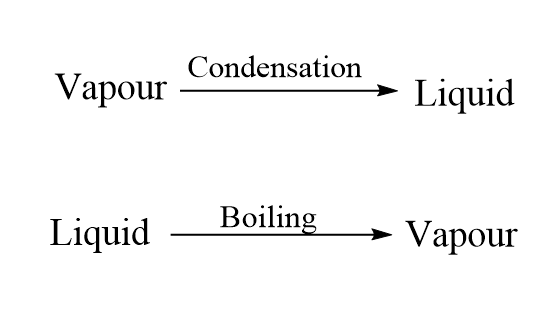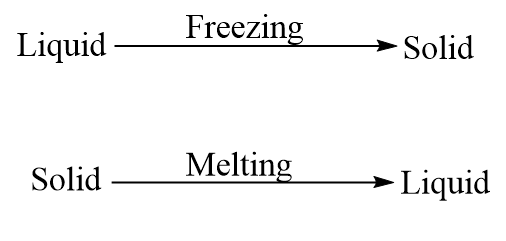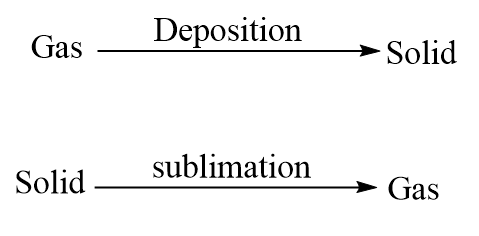Question
Question: For each change of state, what is the opposite change of state: condensation, freezing, deposition?...
For each change of state, what is the opposite change of state: condensation, freezing, deposition?
Solution
The three basic states of matter are solid, liquid and gas. In a solid, particles are packed together in such a way that they aren't able to move much. In a liquid, the particles are more loosely packed than solid such that they are able to flow around each other as compared to solid. Whereas, in gas the particles have a lot of space between them and have high kinetic energy. The particles of the gas will spread out indefinitely and will expand to fill its container.
Complete Step By Step Answer:
The gas phase of the matter changes into the liquid phase, this change of the physical state of matter is known as condensation. This word most often refers to the water cycle. Basically it is the change in the physical state of water vapour to liquid water when in contact with a cloud condensation nuclei within the atmosphere. Condensation is the reverse of boiling. Boiling is the process in which liquid phase of matter changes into vapour phase of matter at the temperature above the boiling point.

Freezing is a process in which the liquid phase of matter changes into solid phase of the matter when its temperature is lower than freezing point. Freezing is the solidification phase change of a liquid usually because of cooling. Freezing is the opposite of melting. Melting is the process in which the solid phase of matter changes into the liquid phase of the matter.

Deposition is the process in which a gaseous state of matter changes into a solid state of matter without passing through the liquid phase. This is additionally known as re-sublimation. Deposition is the reverse of the sublimation. Sublimation is the process in which solid phase changes into gas phase directly without passing through the liquid state.

Note:
State of matter is of five types; solid, liquid, gas, plasma and the man-made Bose-Einstein condensates. Plasma is not a common state of matter on Earth, but it may be the most common in the universe. Stars are the balls of plasma.
